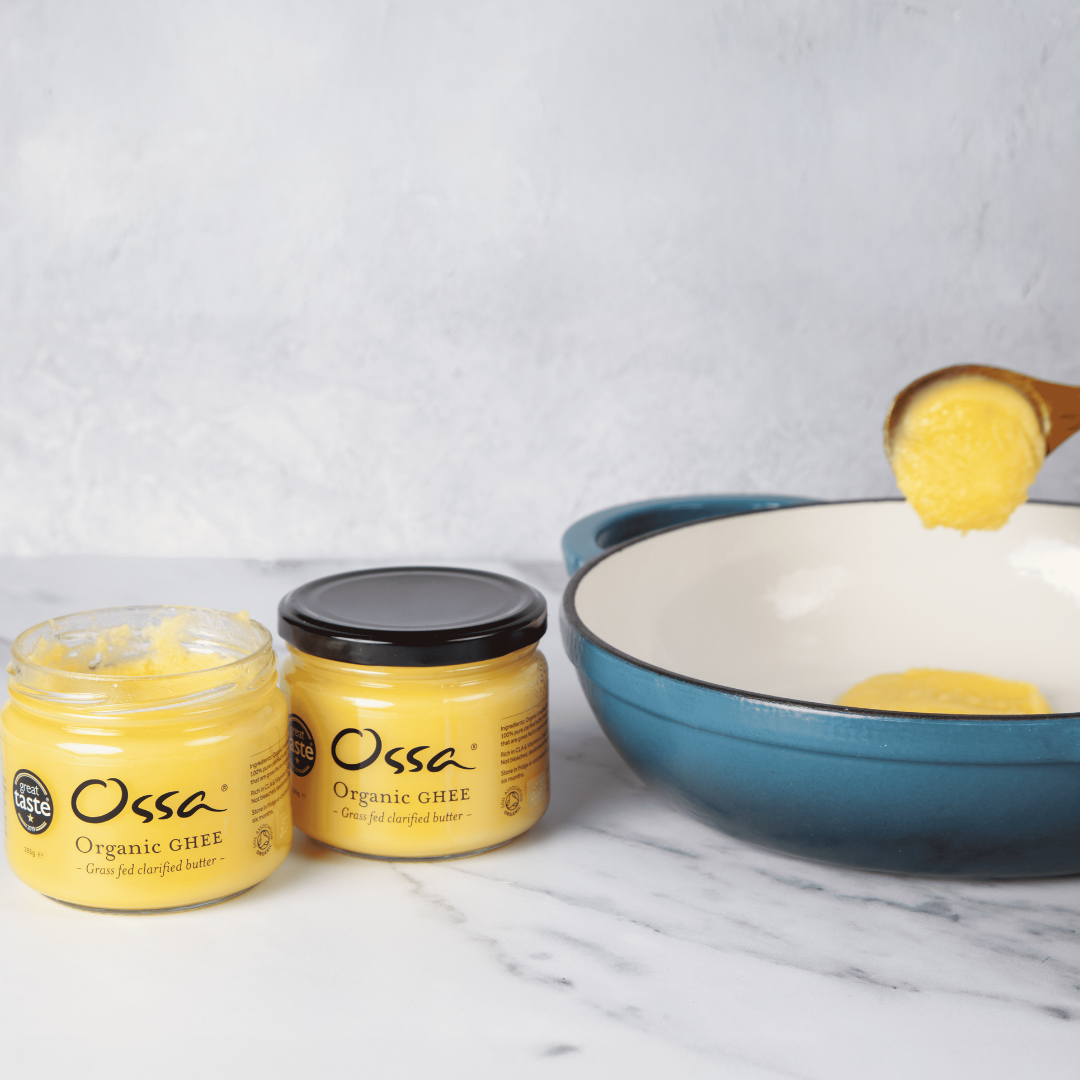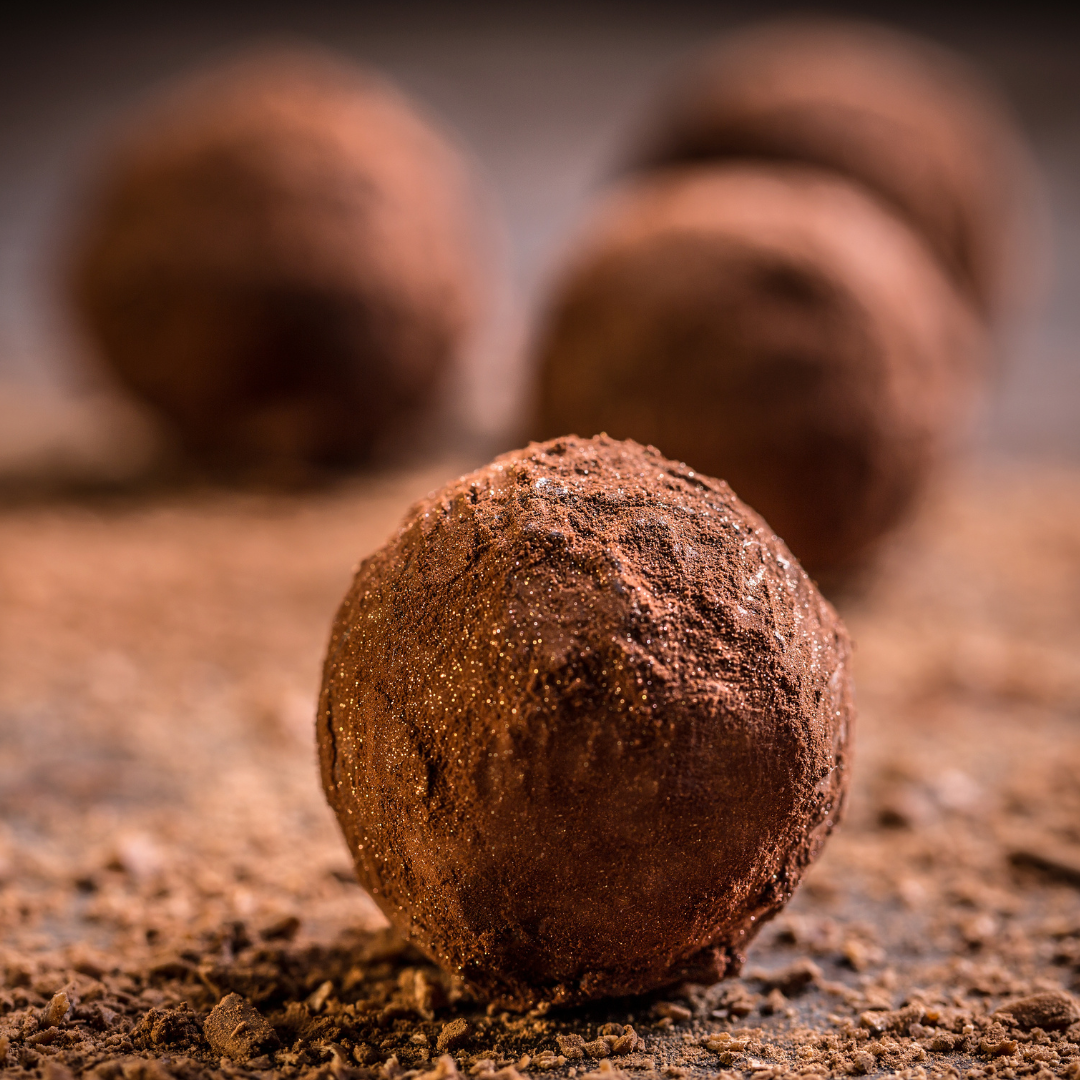For centuries, fats have played a central role in human nourishment. From spreading butter on warm bread to using ghee in traditional cooking, these fats have been staples across cultures and generations. Yet in today’s wellness world, many people are questioning which fat truly supports health, energy, and clarity of mind. The debate of ghee vs butter often arises, with both offering unique qualities but also important differences that make one more suitable for modern lifestyles.
Ghee, a clarified form of butter, has been used in Ayurvedic practice for thousands of years as both food and medicine. Butter, on the other hand, has long been a European and Western dietary staple, rich in flavour and tradition. While both come from the same source dairy they differ significantly in preparation, nutrient density, and how the body processes them. Understanding these differences can help you make better choices for cooking, digestion, and overall wellbeing.
This guide takes a deep dive into ghee vs butter, exploring everything from their nutritional composition and cooking applications to their impact on digestion, mental clarity, and energy.
What Exactly Is Butter?
Butter is made by churning cream until the fat separates from the liquid (buttermilk). What remains is a rich, creamy fat that can be used in countless culinary applications, from spreading on bread to baking cakes.
Traditional butter contains butterfat, milk solids (proteins and sugars like lactose), and water. These milk solids are what give butter its flavour and golden colour, but they can also make it more prone to burning when heated. For people who are sensitive to dairy proteins or lactose, butter may sometimes cause digestive discomfort.
What Exactly Is Ghee?
Ghee starts out as butter but goes through a unique transformation. It is gently simmered to remove the water and milk solids, leaving behind pure butterfat. This process not only makes ghee lactose-free and casein-free but also gives it a rich, nutty flavour and a higher smoke point than butter.
In Ayurvedic tradition, ghee is considered a sacred food. It is used in cooking, healing, and even spiritual practice, as it is believed to promote longevity, vitality, and clarity of mind. Modern nutrition science is now validating many of these traditional claims, showing that ghee’s nutrient profile makes it a powerful fat for fuelling both body and brain.
Nutritional Comparison: Ghee vs Butter
When comparing ghee vs butter, the differences become clear in terms of composition and nutritional value.
-
Lactose and Casein: Ghee is free from both, making it suitable for people with dairy sensitivities. Butter contains both, which can sometimes trigger bloating or digestive discomfort.
-
Smoke Point: Ghee’s smoke point is around 250°C, much higher than butter’s 175°C. This makes ghee a more stable fat for cooking, as it doesn’t break down into harmful compounds as easily.
-
Nutrient Density: Ghee is richer in fat-soluble vitamins (A, D, E, K) and short-chain fatty acids like butyrate, which support gut health and inflammation balance. Butter contains these too but in smaller amounts.
-
Shelf Stability: Because the milk solids are removed, ghee has a longer shelf life and doesn’t require refrigeration. Butter, by contrast, can spoil more quickly if left out.
Ghee and Gut Health
One of the most remarkable benefits of ghee is its ability to support digestive health. Ghee contains butyrate, a short-chain fatty acid that nourishes the cells of the gut lining. Butyrate has been shown to reduce inflammation, improve nutrient absorption, and support a healthy microbiome.
Butter does contain small amounts of butyrate, but because of its lactose and casein content, it can sometimes cause irritation in people with sensitive digestion. For those aiming to improve gut health, ghee is often the more supportive choice.
Ghee and Brain Health
The brain is nearly 60% fat, and the types of fats we consume directly influence cognitive performance. Ghee provides medium-chain triglycerides (MCTs) and omega fatty acids, both of which are readily used by the brain as energy. Many people who incorporate ghee into their diets report improved focus, mental clarity, and sustained energy.
Butter also contains beneficial fats, but because it is less concentrated and still carries proteins and sugars, its impact may be less direct. When comparing ghee vs butter for brain support, ghee is often the clear winner.
Cooking with Ghee vs Butter
Culinary use is one of the biggest distinctions. Ghee’s high smoke point makes it ideal for sautéing, roasting, frying, and any form of high-heat cooking. It remains stable and doesn’t oxidise easily, which means it won’t release free radicals or lose its beneficial compounds during cooking.
Butter, while delicious, is best suited to low-heat cooking or baking. Because of the milk solids, it browns and burns more quickly, making it less versatile in the kitchen. For everyday use, many people find ghee a superior cooking fat.
Energy, Metabolism, and Weight Balance
Another point of difference in ghee vs butter is how they affect energy and metabolism. Ghee is rich in short- and medium-chain fatty acids, which the body uses as quick, clean fuel. These fats are metabolised differently from long-chain fatty acids, supporting sustained energy without blood sugar crashes.
Butter can provide energy, but it contains fewer MCTs and more dairy sugars, which may contribute to fluctuations in energy levels. For those seeking stable energy and metabolic balance, ghee is often the more effective choice.
Ghee for Skin and Joint Health
Fats are vital for skin elasticity, hydration, and repair, and ghee offers unique benefits in this area. Its fat-soluble vitamins (A, D, E, K) are critical for collagen production, wound healing, and reducing inflammation. Many traditional practices include applying ghee directly to the skin for moisturising and healing effects.
Butter also nourishes the skin but may not be suitable for everyone due to its potential allergenic properties. For joint health, ghee’s anti-inflammatory compounds also help ease stiffness and improve flexibility.
Cultural Significance of Ghee vs Butter
Butter holds a special place in Western food culture, celebrated in baking, dairy farming, and culinary tradition. Ghee, however, is deeply woven into the cultural fabric of South Asia. In Ayurveda, ghee is more than food it is a carrier of herbs in medicine, a sacred offering in spiritual practice, and a daily essential for maintaining balance in the body.
The cultural depth of ghee reinforces its value beyond simple nutrition. It is a food that bridges tradition and modern science, showing how ancient practices often align with today’s wellness needs.
The Modern Case for Ghee
With today’s emphasis on digestive health, energy balance, and sustainable cooking, ghee is uniquely positioned as a superior fat. It accommodates people who are lactose-sensitive, fits well into ketogenic or low-carb lifestyles, and provides versatile culinary applications.
Butter will always have its place, but ghee aligns with the modern demand for clean, nutrient-dense, and versatile foods. When considering ghee vs butter for daily use, ghee consistently comes out ahead in terms of health benefits, cooking stability, and digestibility.
Choosing Quality Ghee
Not all ghee is created equal. The quality depends on the source of the butter and how it is prepared. Grass-fed ghee, such as the kind we create at Ossa Organic, offers higher levels of omega-3 fatty acids, conjugated linoleic acid (CLA), and fat-soluble vitamins. Our slow-clarification process ensures purity, rich flavour, and nutrient density.
When choosing between ghee vs butter, selecting high-quality ghee ensures you get the maximum benefit. Industrially produced versions may not carry the same depth of nutrition or flavour.
Where Ghee Fits in Daily Life
Adding ghee into your routine is simple:
-
Use it for frying eggs or sautéing vegetables.
-
Stir a spoonful into coffee or tea for an energising start.
-
Spread on toast as a rich, dairy-free alternative to butter.
-
Add to soups and stews for depth of flavour and nourishment.
-
Apply lightly to the skin for natural hydration.
Its versatility makes it more than a cooking fat it becomes a wellness staple that supports body and mind.
Ghee vs Butter
Both ghee and butter come from the same source, yet their differences shape how they fuel the body. Butter offers flavour, tradition, and familiarity, but ghee brings something more: stability for cooking, digestibility for sensitive systems, and concentrated nutrition for energy and mental clarity.
In the ongoing discussion of ghee vs butter, ghee stands out as the fat that not only fuels daily activity but also supports deeper wellness goals. Whether your focus is gut health, brain function, or sustainable cooking, ghee delivers benefits that butter simply can’t match.
At Ossa Organic, we honour this tradition by producing ghee that reflects purity, sustainability, and nutrient density. Choosing ghee is more than choosing a cooking fat it’s choosing a path of nourishment that bridges the wisdom of the past with the needs of the present.





